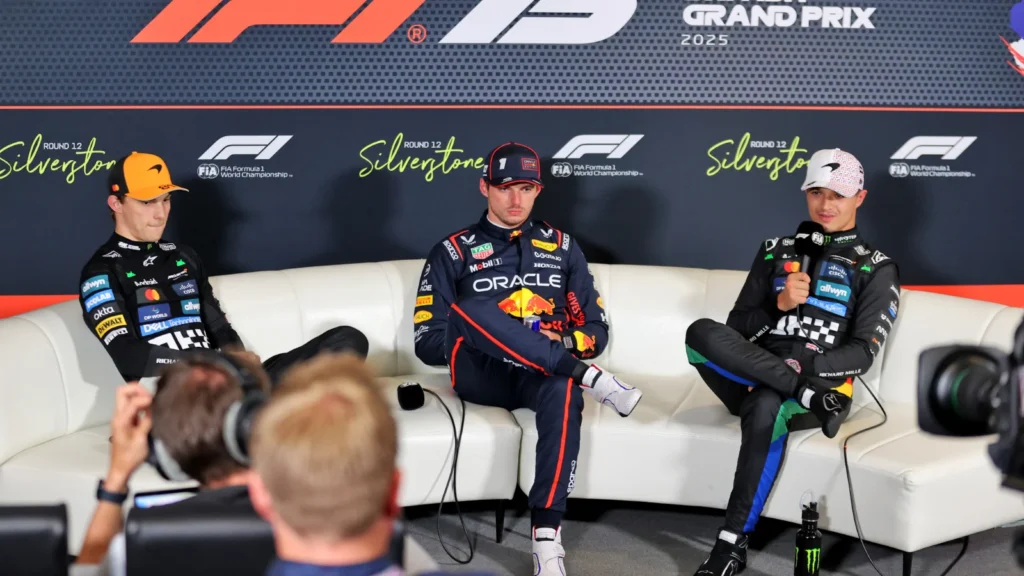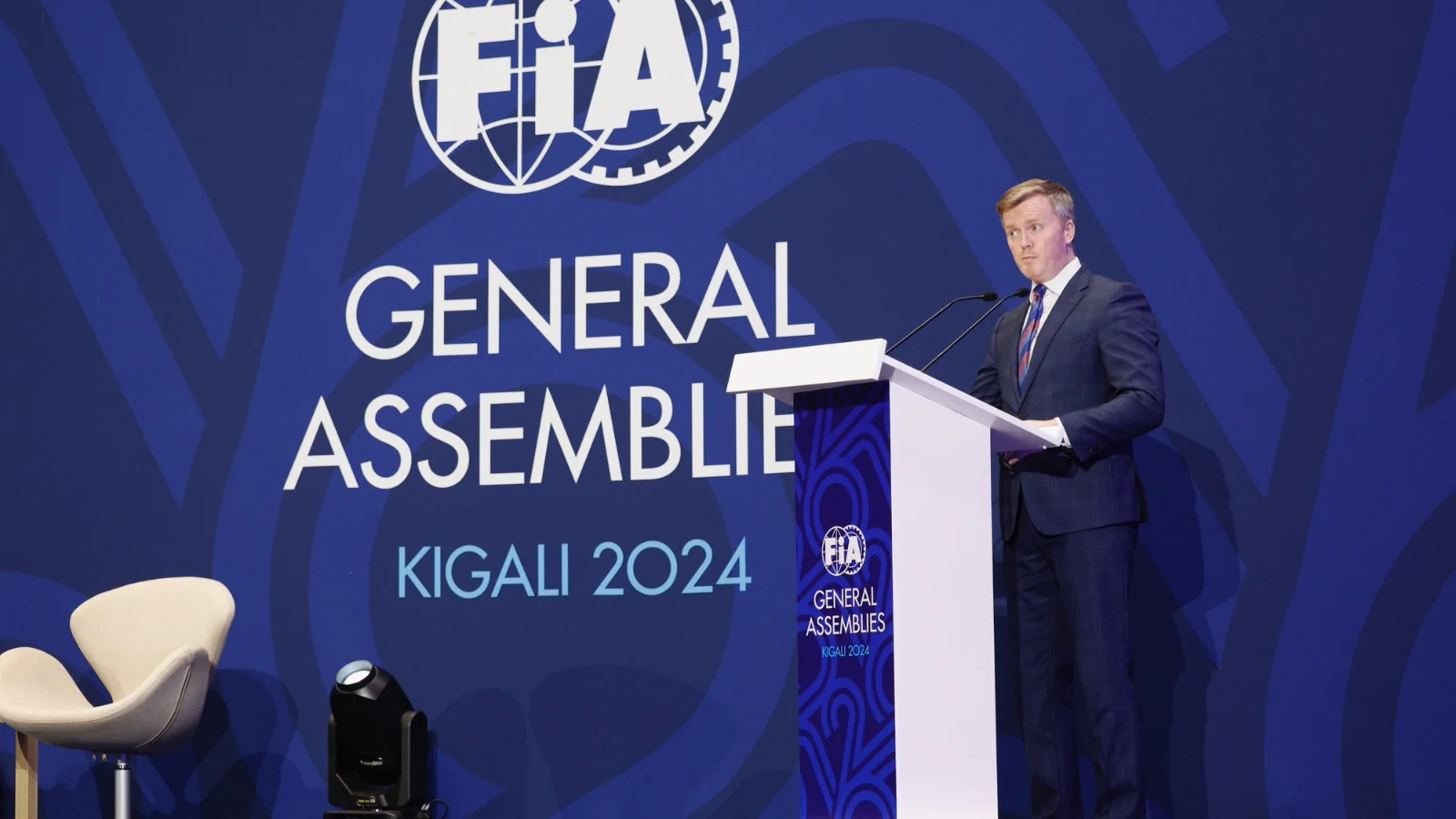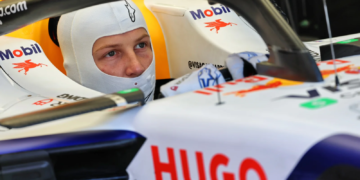With online abuse a regular occurrence in both Formula 1 and the wider motorsport world, Motorsport Week has been given the chance to publish a fresh perspective on the challenge of combating it in a report written by Professor David Hassan, Lead Investigator for FIA’s United Against Online Abuse Campaign.
Motorsport enjoys a distinguished global reputation for fairness and integrity, widely appreciated for its sporting conduct, fair play, and sportsmanship. As the governing body of world motorsport, the FIA has a duty and responsibility to uphold this reputation, work that is exemplified by its award-winning United Against Online Abuse (UAOA) campaign which provides global leadership to promote sport as a positive force for change and free from toxic online abuse and harassment.
The recent disgraceful online abuse directed at F1 drivers Yuki Tsunoda, Franco Colapinto and Jack Doohan serves as a stark reminder of how urgent and timely this mission is.
The social media attacks that followed an on-track incident were completely unacceptable. No competitor, at any level, should ever be subjected to such hostility and abuse.
The FIA rightly recognises that creating and maintaining a respectful and healthy sporting environment is a key responsibility of theirs as the governing body. The FIA’s recent move to strengthen the sporting code around offensive language reflects this clear commitment to setting standards that uphold integrity and protect everyone involved in the
sport.
Unsporting behaviour, including the use of bad language and dangerous actions, affects every sport and can trigger a ‘ripple effect’ that shapes fan behaviour, stokes hostility, and drives online abuse. UAOA’s 2025 Barometer Report revealed that 72.2% of sporting federations support a collective approach to addressing this issue. Therefore, given the significant risks it poses to motorsport’s culture and reputation, it is clear why the FIA has taken a proactive stance in safeguarding the integrity of the sport it governs.
Similarly, many other major sporting bodies, such as FIFA, the NFL, and the IOC, have introduced comparable, and in some cases more stringent, regulations designed to protect the integrity and responsibility of their sport. Within motorsport this responsibility is enshrined with the FIA’s International Sporting Code (ISC), particularly in Article 20, which defines misconduct in broad terms. By addressing offensive language, abusive behaviour, and incitement, these regulations are not only crucial for ensuring fairness on track but are also critical in preventing the resultant effects of unacceptable behaviour in the digital world.

Misconduct in sport spreads to the fan culture
The FIA’s concern is well-founded, as growing research shows that misconduct in elite sport is not confined to the arena; it extends into fan culture, online discourse, and public trust in sporting governance. The revisions the FIA has made to their proposals also show the Federation is listening to the drivers throughout their championships and is determined to implement a workable, practical, and reasonable regulation. The revisions to allow suspended penalties, consideration of mitigating circumstances, and the application of context are welcome developments and a sign of the FIA’s dedication to fairness, proportionality, and maintaining an open and healthy dialogue with competitors.
Research from Arwen.ai, a founding partner of the UAOA campaign, highlights the real-world consequences of drivers’ public statements. In their 2024 study, a driver who criticised FIA stewards triggered 64% more toxic online messages compared to a driver who chose not to comment.
With UAOA research also revealing that 50% of sporting federations now report that their referees, stewards, and officials are routinely subjected to online abuse, the FIA’s strong approach is also designed to safeguard those who officiate, steward, and referee races, just as any serious and responsible governing organisation would be expected to.
Further academic studies, such as those published in the European Sport Management Quarterly (De Bosscher, Shibli & De Rycke, 2021), also underscore the critical role of governing bodies in reinforcing positive sporting values to combat negative societal impacts. The rise of social media has intensified the effect of ‘trigger events’ in sport, where
Moments of controversy or sporting intensity can escalate into widespread online abuse.
Meanwhile, research from Dublin City University, UAOA’s academic partner, confirms that how governing bodies and athletes behave in digital spaces profoundly influences whether those environments become either constructive or toxic. It is for this reason that FIA President Mohammed Ben Sulayem has made tackling online abuse in sport a priority. The United Against Online Abuse initiative he established has gained widespread support from international governing bodies and prominent athletes who have faced similar challenges. They are united under the FIA’s leadership to confront one of sport’s most insidious yet pervasive issues.
The FIA ‘has chosen to lead by example’
While motor racing is undeniably an adrenaline-fueled, high-stakes sport, qualities that are central to its global appeal, preserving its core values of fairness and sportsmanship remains essential. Research (Yim, Byon, Baker & Zhang, 2021) shows that younger fans, Formula 1’s target growth demographic, value transparency, inclusivity, and ethical
leadership. These fans don’t just consume sport, they expect it to stand for something. By protecting these ethical foundations, the FIA is also ensuring the longevity and success of motorsport’s principal competition in the decades to come.
Ultimately, drivers are more than competitors, they are influential leaders and role models whose words and actions shape fan culture and set the tone for the sport as a whole. The FIA can choose to stand by as unchecked behaviour trickles down through fan communities, or it can take a strong, proactive stance in upholding sporting integrity. Given the weight of the evidence and research, it is clear why the FIA has chosen to lead by example, designing and enforcing their misconduct regulations firmly but fairly to safeguard the integrity of its sport now and, crucially, for the next generation of sports fans.
READ MORE – The Race Makers: The stars behind the scenes at Silverstone









Discussion about this post